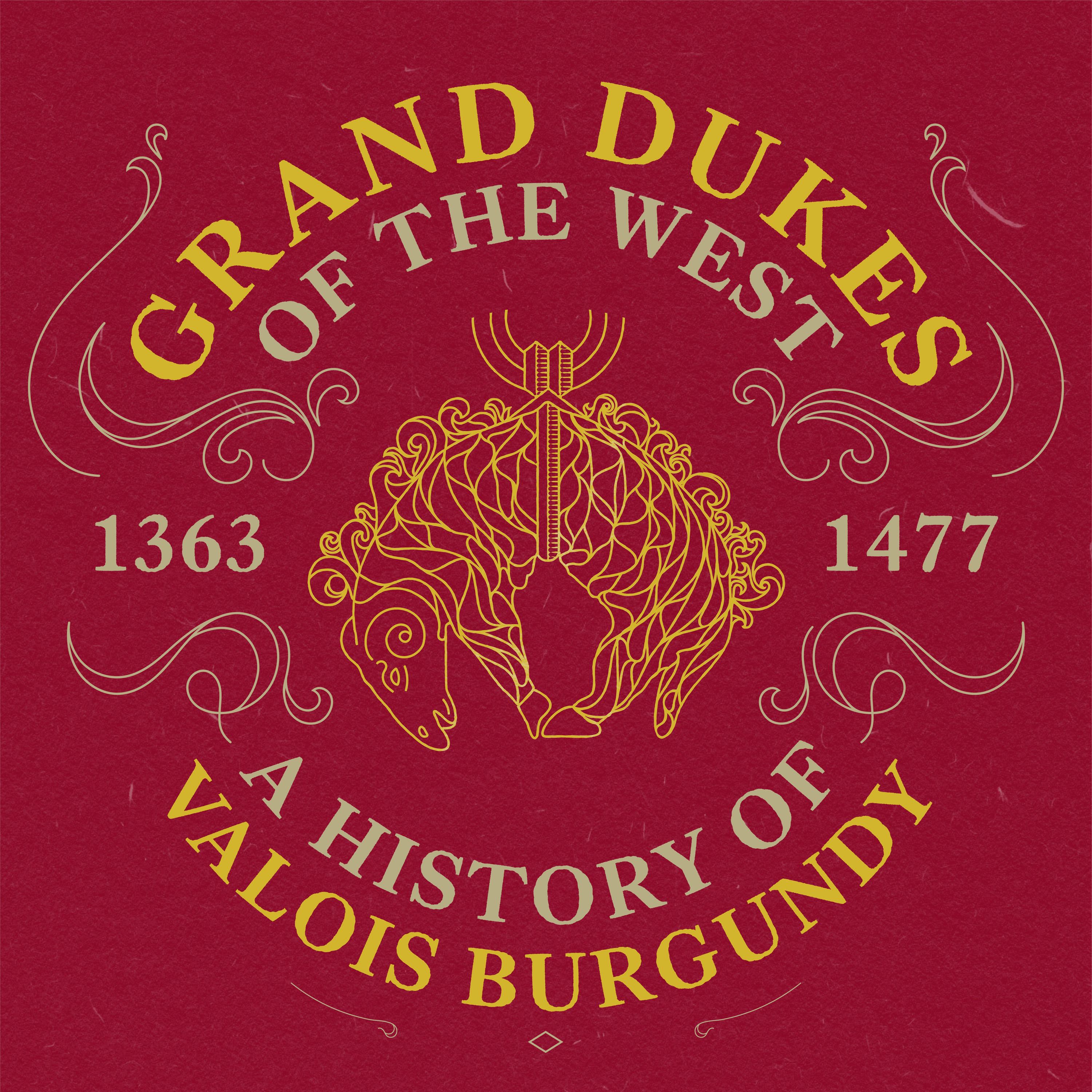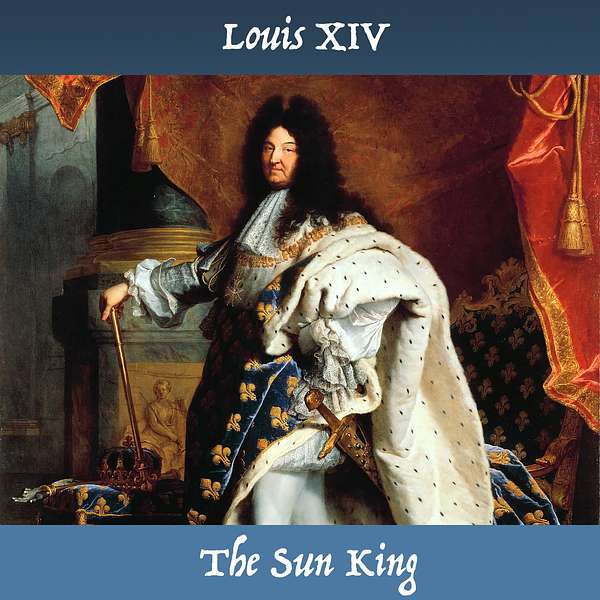
La Fayette, We Are Here!
La Fayette, We Are Here!
Louis XIV, The Sun King
Use Left/Right to seek, Home/End to jump to start or end. Hold shift to jump forward or backward.
Probably the most famous French monarch, Louis XIV left a deep mark on France and Europe. Over his 72-year reign, from 1643 to 1715, he accomplished many things. He conquered new territory, expanded France's colonies, modernized the country, built monuments, created major institutions and became an absolute monarch. Even North America was touched by him. Louisiana was named after him, and many American cities come from French forts and counters established then.
Learn about him and the changes he brought to France and the world during his reign in this episode!
Time codes:
Introduction
05:23 - The Fronde revolt, Louis’s childhood
09:26 - Louis’s Personal Reign
19:28 - Versailles
23:36 - Wars and Conquests
28:56 - New France and Louisiana
31:05 - The Sun King’s Dusk
33:39 - Conclusion
Music: Marche pour la cérémonie des Turcs, composed by Jean-Baptiste Lully, arranged and performed by Jérôme Arfouche.
Artwork: Portrait of Louis XIV in coronation costume, Hyacinthe Rigaud, 1701.
Reach out, support the show and give me feedback!
Introduction
Imagine yourself as a five year old boy playing in the garden, having fun with your friends, while your mother is watching you, sitting on a bench. At some point, a man comes down from the palace, right behind the gardens. He goes straight to your mother and talks to her. She looks a bit worried and looks at you. She makes a small sign, you understand that you have to come to her, so you do. She says: “your father wishes to speak with you”. So you say yes and you follow the man back to the palace.
You go through the corridors, up the stairs, all the way to your father’s room. He’s right here, lying on his deathbed. Rotting, dying, even though is a mere 41 years old. He sees you entering the room and stopping by the bed. He gathers all the strengths he has left to sit up a bit. And he looks straight at you. And you do the same, you look back at him. Sad and yet proud of your father doing everything he can to look strong in front of you. And he says: “my son, so you know who you are?”. And you answer: “Louis XIV!”
I am not entirely sure that the story I just told, actually happened. But I like to think it did, because I think it illustrates very well the character of that young boy that will become France's most famous king.
If you were to ask anyone on the street of Paris, or any other French city "who was the greatest French monarch?", I think the vast majority would answer Louis XIV. Let's find out why he let such a lasting impression.
Louis was born on September 5 1638. His father, Louis XIII and mother Anne d'Autriche (that means Anne of Austria, but she was actually Spanish, more on that later) had been married for over two decades when he came along. He was seen as a miracle and quickly was nicknamed "Dieudonné", given by God.
Louis XIII had been helped during most of his reign by the Cardinal de Richelieu, one of Europe's most important political figures. Together, they improved the authority of the king and centralized it. They also worked on reinforcing French culture and prestige with various institutions and projects. For example, the Académie française is created in 1634 by Richelieu, and France's colonial policy in Africa and America made it a force to be reckoned with, all over the globe, not only in Europe.
But the country remained a patchwork of counties and duchies. The relationship to the king still had feudal roots, even though the French kings had work for centuries to elevate themselves above that. The most important part of that was making the king ordained by God, not by the church or by any council of noblemen. The king answered only to God, but his authority was not yet absolute. Parliament had a strong power in France, as well as the old nobility. Some dukes or counts were sometimes richer than the king, and able to mount armies capable or rivalling his own.
Although the Royal authority had grown quite a lot, there was still work to be done, and it became very apparent when Louis XIII died, in 1643. He wished for a council to assure the regency, but the queen, Anne, made sure it didn't happen. She wanted to make sure that her son, Louis, would be above all noblemen in France, and made political moves to be queen regent, aided by the Cardinal Mazarin, Richelieu's successor. She also made sure that Gaston d'Orléans, Louis XIII's brother, couldn't have a claim on the throne. Louis XIV, then only five years old, only had to accept this and to proclaim it to Parliament, which he did. The table was set for drama in the French kingdom.
The Fronde
Louis's childhood was deeply marked by a civil war known as the Fronde, from 1648 to 1653. There is actually, two rebellions. The first is a parliamentary one, that takes its roots in the multiple popular revolts provoked by the constant raise of taxes and famines that afflicts the people of France. Food prices skyrocket from 1647 to 1648, in part because France's implication in the Thirty Years War empties its coffers. To improve the situation, parliament proposed various reforms, directly in contradiction with the Queen and Mazarin's policies.
After a failed attempt to repress the parliamentary demands, by having the leaders of parliament arrested, the people of Paris took the streets and the events culminated on the night of January 5 to 6 1649, when the court had to flee Paris for Saint-Germain. This event will mark Louis for life, and he will always be weary of Paris and its mob.
The popular and parliamentary revolt did lose steam over the winter. The execution of the English King, Charles the First, on January 30th 1649 also put fear in the hearts of these quasi-revolutionaries. They could see what would happen if they went too far, and they finally accept to negotiate with the Queen and Mazarin.
But the old and powerful French noble families still wanted to take advantage of the situation. In particular the princes Condé and Conti. Condé was especially dangerous, being a victorious general, and having helped Mazarin against the people of Paris in 1649, thought he could have some advantages. But the queen and Mazarin had other plans, and in 1650 they had him arrested, along with the Prince Conti and others. The clergy was against this decision, and civil conflicts started all over the country. The Estates Generals were summoned in 1651 to work on a solution, but it wasn't easy. The nobility criticized the ever-increasing taxation, lack of representation and other deep issues within the French State. However, the rebels, if we can call them that, weren't united in their claims and they often fought amongst themselves, weakening their position. Various cities declare open rebellion against the Royal authority, in particular Bordeaux.
Nevertheless, the young Louis watched all this unfolding and in 1652, he went back to Paris with the court to try and achieve a solution. Mazarin is the one actually doing the negotiating, of course, but Louis is there for every step, until an agreement is reached and Bordeaux surrenders in 1653.
The Fronde is crucial to understanding Louis XIV. It happens while he's a teenager. He's young enough to be scared and impress by it, but old enough to actually appreciate what is really going on. He's the king and yet he's not safe from his own countrymen should they decide to revolt against the central power. He will work all is life to alleviate these problems and to make sure he won't, ever, be at the mercy of future troublemakers within or without his kingdom.
Louis's personal reign
Now, I want you to have a clear picture of Louis. We just discussed his childhood, and it was traumatic, even if he was king. Yet, growing up, he quickly showed a strong intelligence, calm and resolve. He learned how to be an effective ruler by watching his mother, who he was very close to, and Mazarin. Louis became major by law when he was 13, but he effectively assumed personal power in 1661. And he did so, without a prime minister, which some considered folly. Surely one man, however great, couldn’t rule over France all by himself. Well, Louis will prove them wrong.
On a personal level, he was quite interesting. Handsome and strong, he was the image of the ideal monarch even before he actually took matters into his own hands. He was know to being able to ride on horseback for over 8 hours, which allowed him to visit troops on battlefields unexpected. He often got quite close to battles, that inspired some respect from his officers and soldiers.
While he was keen on the military aspects of his rule, and that ended up being a two edged sword, he was also a patron of the arts. I don’t think France has had such a supporter of French culture since Francis the 1st in the mid XVIth century. Louis was himself an accomplished ballet dancer and used this both for his entertainment and to establish his authority.
The perfect example of that is the Grand Caroussel, a spectacle given in 1662 to celebrate the birth of Louis’s first son. This “party” will have an audience of almost 15000 people, and Louis is at the center of it. The staging makes the King a cosmic figure, dressed and painted in gold, around which the greats of the kingdom revolve, and allows him to definitively adopt the emblem of the Sun as his own. No one could outshine Louis.
He’d been associated with the Sun for a few years, being the star around which everything and everyone revolves, but he was now taking it to the next level. In modern day vocabulary, he was a master of marketing. He made it so that you’d have to be illuminated by the Sun King’s rays to amount to anything. If his light didn’t reach you, you’d be confined to darkness and forgotten. All of Louis internal politics was based on this: to impress and seduce even the strongest noble families in France, to ensure their allegiance and servility. They’d fight amongst themselves to gain the king’s favour, reinforcing his own power to their detriment. This worked perfectly.
At the same time, Louis had a true passion for the arts. He met Molière when he performed a play in front of him and became a supporter of the famous playwright. He loved his plays and laughed aloud during the performances. These were accompanied by music written and conducted by another great artist, Jean-Baptiste Lully. An Italian composer and conductor, who’s style pleased Louis. He became the master of music for the royal family. Other famous artists would benefit from Louis’s blessing: La Fontaine, Racine, Boileau, Corneille and others.
This is considered the beginning of French cultural predominance in Europe. Spain’s power and influence was declining rapidly, in part because of various defeats to the French armies, and France was becoming the new beacon of culture. Louis will establish various institutions that will ensure that: the Science Academy in 1666, the Architecture Academy in 1671, the Music Academy in 1672, the Comédie française in 1680 and others. These left a deep mark on France and Europe to this day.
On a political level, Louis had to make some compromises to ensure his power in Europe. The first move was to marry Marie-Thérèse of Austria who was, like Louis' mother, Spanish. You see, the main House in Europe at the time was the Habsburgs, and they sat on thrones in Spain, Austria and the Lower Countries. They basically encircled France. Louis XIII and Anne d'Autriche married to diminish tensions between France and Spain, but it didn't work that well, the two countries remained either at war or at least adversaries. Louis XIV's wife was chosen with the same idea, to alleviate tensions between Europe's two main continental powers.
Louis didn't care that much for Marie-Thérèse at the beginning, but he was always respectful to her and made sure she was also respected. Apparently, they did reach a certain understanding in their relationship, although poor Marie-Thérèse didn't have much of a choice in the matter.
That being said, Louis was a handsome young king and he took advantage of it. Even by monarchy's standards, he had many, many affairs. Some though were much more important than others. By far the most important during this period is the one he had with the Marquise de Montespan. She became the king's official mistress, yes that position existed, in 1667 and had seven children with him, all recognized by Louis and cared for by him. He was a strange kind of womanizer. He always made sure the women he loved were well taken care of and recognized all his illegitimate children. For a XVIIth century monarch, this could be seen as considerate. In the second half of his life he will secretly marry Françoise d'Aubigné, marquise de Maintenon, after Marie-Thérèse's death in 1683, but I'll circle back to that later.
Louis also had an interesting family. I already mentioned his uncle, Gaston, who had views on the throne. He was thwarted by Louis's political maneuvering under Mazarin's guidance and became as loyal as can be. Louis's mother, Anne, remained very close to Louis until her death in 1666. Louis was devastated by her passing, but his younger brother, Philippe, even more.
Philippe is also fascinating. Known to everyone as simply "Monsieur", he clearly loved his brother, and so did he. He was a renowned fighter, willing to expose himself and take risks during battles. He was also a homosexual and made it clearly obvious. He had male lovers and a personal court composed by his "mignons", which means "cute" in French (the English term “minions” for servile sycophants comes from that I believe). He dressed in an ostensible manner all his life and was very flamboyant. And his brother, the king of the biggest Catholic kingdom, known as the Roi Très Chrétien (Utmost Christian King), who was ordained by God, accepted this perfectly and so did his court. Perhaps some leaders in our times could take inspiration of that spirit of tolerance. He also played a key role in French foreign policy by marrying Henriette d'Angleterre, sister of the King of England in 1661 and Élisabeth-Charlotte du Palatinat in 1671, after Henriette's death. Both these marriages allowed political alliances that served Louis. When Philippe died in 1701, Louis was deeply affected by it and cried for days.
That's something I'd like to enlighten before I get into the more political aspects of Louis's reign. We tend to see these big political figures as automatons or heartless leaders. But Louis proves than even the most absolute monarch can struggle with his feelings and wants to do good by his loved ones. He was far from perfect, but he wasn't either unnecessarily cruel. Although, as we'll see in our next section, the French people might disagree with that statement.
Versailles
A keen example of that would be the Versailles castle. Let's go back in time a bit. Versailles, situated about 20km West of Paris, was Louis XIII's hunting lodge. Nothing big, but with huge grounds around it. The king and his court lived in the Louvres castle, in Paris, while sometimes retreating to Saint-Germain for some respite. The court never went to Versailles.
Louis XIV wanted to put some distance between him and Paris. The city was dirty, dangerous and filled with bad memories of his childhood. Versailles was ideal for him. It was far enough to put some distance from the Parisian people and him, and yet close enough to govern effectively. In the mid 1660's, he decided to augment the castle, create gardens and fountains and to make it the most impressive castle in all of Christendom. This journey will last until after his death.
Louis had help. His “intendant des finances”, or minister of Finance, was Colbert. This man was as close to a prime minister as there was under Louis XIV. He transformed the French fiscal system and modernized it. He made taxation a lot more efficient, helped create manufactures, industries. French craftsmanship and commerce thrived thanks to him. But the king kept asking for more money to make Versailles, and especially its gardens, bigger, more grandiose with extraordinary fountains all over. This was huge artistic and engineering endeavour.
He hired the best talents in France to do so. The architect Louis le Vau is responsible for the early works on Versailles. He was succeeded upon his death by Jules Hardouin-Mansart. Mansard is responsible for the “Galerie des Glaces”, or Hall of Mirrors, one of the most astonishing and impressive realizations of the era. Louis also hired André Le Nôtre to create the famous Versailles gardens. This was the dream team of the period, and they basically had an infinite budget, which Colbert didn't find funny. Each time he found some millions for the king, Louis requested more for Versailles.
He finally moved in with the royal court in 1682 and would never again live in Paris. Versailles had the desired effect. All nobles became courtesans who would do anything to gain the king's favour. The majestic gardens along with the stunning castles made an indelible impression on whoever visited the king. All of Europe was in awe before it. And copied it. St-Petersburg was created by Peter the Great, Tsar of Russia, as a copy of Versailles for example.
But that extravagance had a price. France was at the time the most populous country in Europe, with huge resources. But Louis sucked them dry. The taxes and demands were so high that famine and misery were rampant in the country. When Louis was made aware of this, he usually would blame the bad weather or God's will. He did order public works to be made to improve the situation, but he never cut on the spendings. And if there'd be only Versailles, maybe it would have been enough. But Louis had another passion: war.
Wars and Conquests
During his reign, Louis was at war roughly half of the time with other major powers. He reigned for 72 years, do the math. That's a lot of warfare, the costliest enterprise a State can get itself involved in. As I said, Colbert performed miracles to modernize the French State and to make it more efficient, and that included its army.
Under the king's leadership and aided by forward-minded officers, the French army was transformed into a much more professional tool. The regiments were better trained and equipped, and especially better led. Merit and experience were favoured over titles and money for appointing officers, a revolution for a country that was just exiting a feudal period.
Let us sum up these wars and their consequences, without going into detail. The first one is the Franco-Spanish war, which ended in 1659 and had been going on since before Louis's birth. After the crushing French victory at Rocroi in 1643, the French kept the advantage and Spain had to give in by signing the Traité des Pyrénées,. Spain had to cease some territory to France and to pay reparations. That treaty marks the begging of a period of decline for Spain that'll continue until the XXth century.
There is then a small war in 1667-68 called the War of Devolution. Spain refused to pay Marie-Thérèse's dot to Louis, so he declared war. This time, Spain had help from England, the Netherlands and Sweden. Nevertheless, the French forces, led by Marshall Turenne triumphed. Spain had to sign another humiliating Treaty and France gained more territory. It's also the time when Louis hired Vauban, the famous military architect, to fortify the French borders. His remarkable forts are still visible all over France and revolutionized defensive warfare.
Next is the war of Holland, from 1672 to 1678. This one opposes the Dutch Republic, Spain, the Holy Roman Empire and other countries against France, England and Sweden. I know, alliances shifted quite fast at the time... I won't go too much into the details but let's say that Louis wanted to diminish the Dutch Republic's power and to limit their formidable commercial endeavours. France gained many victories, basically invading the Lower Countries. It is a very costly war but a successful one. In 1678, the adversaries sign the treaty of Nimègue. France gains territory in it's northeast as well as in the Caribbean. This is considered Louis's most impressive military accomplishment.
The last two wars weren't as successful. Louis wanted to achieve even more, to establish himself and France as the incontestable military and financial power in Europe. So in 1688, there was a new war, known as the War of the League of Augsburg or the Nine Years'War. It's a huge conflict that involves pretty much every European power, all against France. It pretty much ends in a stalemate and Louis doesn't gain much from it, except Strasbourg.
Finally, and then we'll quit the subject of war, comes the War of the Spanish succession. When Charles II, king of Spain, dies without an heir, the various European factions start an argument. Louis wants to seize the occasion to remove the Habsburg family from Spain. See, the Habsburg with their crowned heads in Spain, Lower countries and elsewhere basically encircled France. Louis wanted to break that circle and to put a friendly king in Spain. This war will be long and exhausting for everyone involved, from 1701 to 1714. In the end, Louis gets what he wanted and a French Bourbon monarch becomes king of Spain, with the limitation that a Spanish bourbon cannot be king of France, ever. The Bourbon family is still reigning in Spain today.
But France is on the edge of economical and social collapse. It's a paradox, as France became more powerful and gained territory, it also grew poorer and so did its people. This vicious circle and the concentration of power are key elements that will eventually lead to the French Revolution of 1789.
New France and Louisiana
Let us take a detour by North America. Since the early 17th century, France had established New France in modern-day Canada, on the Saint-Lawrence river. Québec City had been founded in 1608 and Ville-Marie, now Montréal, in 1642. But the French didn't stop there and kept exploring this unknown territory.
There are two main elements to focus on during that period. The first is the exploration along the Great Lakes and then the Mississippi river. René-Robert Cavelier de La Salle explored these regions, on foot, all the way to the Gulf of Mexico. He established forts along the river that will later become cities, now American cities. He will also claim that huge territory for France and name it Louisianne, or Louisiana, in honour of his king. To cite a few cities that were founded as French Forts or commercial counters during that era, let us quote: Chicago, Detroit, Pittsburg, Saint-Louis, Memphis, New Orleans and more.
The second element is that Louis wanted to reinforce the established colony of New France. This was mostly achieved by sending a regiment to strengthen the colony, the Régiment de Carignan-Salières and by sending female settlers, know as the “Filles du Roi”, the King's Daughters. These measures, amongst others, made New France stronger than ever, much to the dismay of England and its North American colonies. That will play out in the 1750's and 1780's.
But all good things come at an end, and we must discuss the end of Louis' life.
The Sun King's Dusk
The last thirty years of Louis's life are indeed marked by suffering, bigotry and impoverishment for the kingdom. As I said earlier, Louis married in secret the Marquise de Maintenon in 1683. She was a very bright woman who took care of Louis's illegitimate children. She was also a catholic devout and made Louis a lot more so in his daily life. Age probably also played a role. To me, the biggest mistake of Louis's reign happened then.
In 1685, Louis revoked was was known as the “Edit de Nantes”. That proclamation allowed freedom of religion in France and was in place since 1598, then putting an end to decades of civil war. Louis wanted the kingdom to be Catholic, like him and to force it down the throat of his people if need be. That, plus the many persecutions against the French Protestants, known as the Huguenots, forced thousands of them to flee France for England, the Dutch Republic or other Protestant countries. It was a net loss for France, since these people often were merchant, craftsmen and creators. Literally a small catastrophe for the country that happened for no good reason.
In the last years of his life, Louis suffered many personal tragedies. He had a big family. Children, grandchildren and great-grandchildren. His succession was assured. But Faith struck him and his family. First, his younger brother died in 1701. Then, Louis's first son in 1711, and his grandson in 1712. All of a sudden, the future was much more uncertain. Louis even though of making his illegitimate children eligible for the crown, but knew that they would be contested and that there might be a French Succession War. When he died in 1715, his great-grandson, Louis, aged five, became Louis XV. The crisis was averted, but not everything was rosy in the French kingdom.
Conclusion
Voltaire said of Louis XIV: "Not only were great things accomplished during his reign, but he did them himself" and he wasn't that off the mark. Good or bad, most major accomplishments during Louis's reign were made possible because of his will.
Louis left France the strongest military power in Europe. His throne untouchable, the king's authority above everyone else's. Under his reign, French culture, science and industry grew remarkably. To put it simply, at the beginning of the XVIIIth century, if you wanted the best of anything, you'd go to France to find it. He also modernized, with the help of Colbert, the French law, financial and economical systems as well as the city of Paris. Mud streets were paved, the police reinforced, and institutions like the Invalides for wounded soldiers built for example. France won't know major changes like this again until Napoléon. New France thrived during his reign and France gained other colonies.
But he also left empty coffers and a country tired by multiple and costly wars. His people's standard of living had actually declined during his reign and it will literally take a revolution to change that. He deluded himself into thinking that the French people's misery wasn't his fault. Maybe it wasn't entirely his fault, but it is clear that he though of his status and of France's way before his people's welfare. I have to say, that, at the end of his life, he became more sensible and recognized his faults. Shortly before his death, he said to his five-year-old great-grandson, "don't imitate me in anything, especially not in war, I loved war too much". Good advice to the future Louis XV.
Louis will forever remain the Sun King. The monarch who appeared on stage painted in gold with the strongest nobles of France revolving around him. Blessed by his light, elevated by his magnificence. You can admire him, or loath him, but Louis XIV deserves his official title of Louis the Great, because of the impact he had in France, Europe and the world.
That’s all for today. I hope you enjoyed the show. Au revoir !
Podcasts we love
Check out these other fine podcasts recommended by us, not an algorithm.
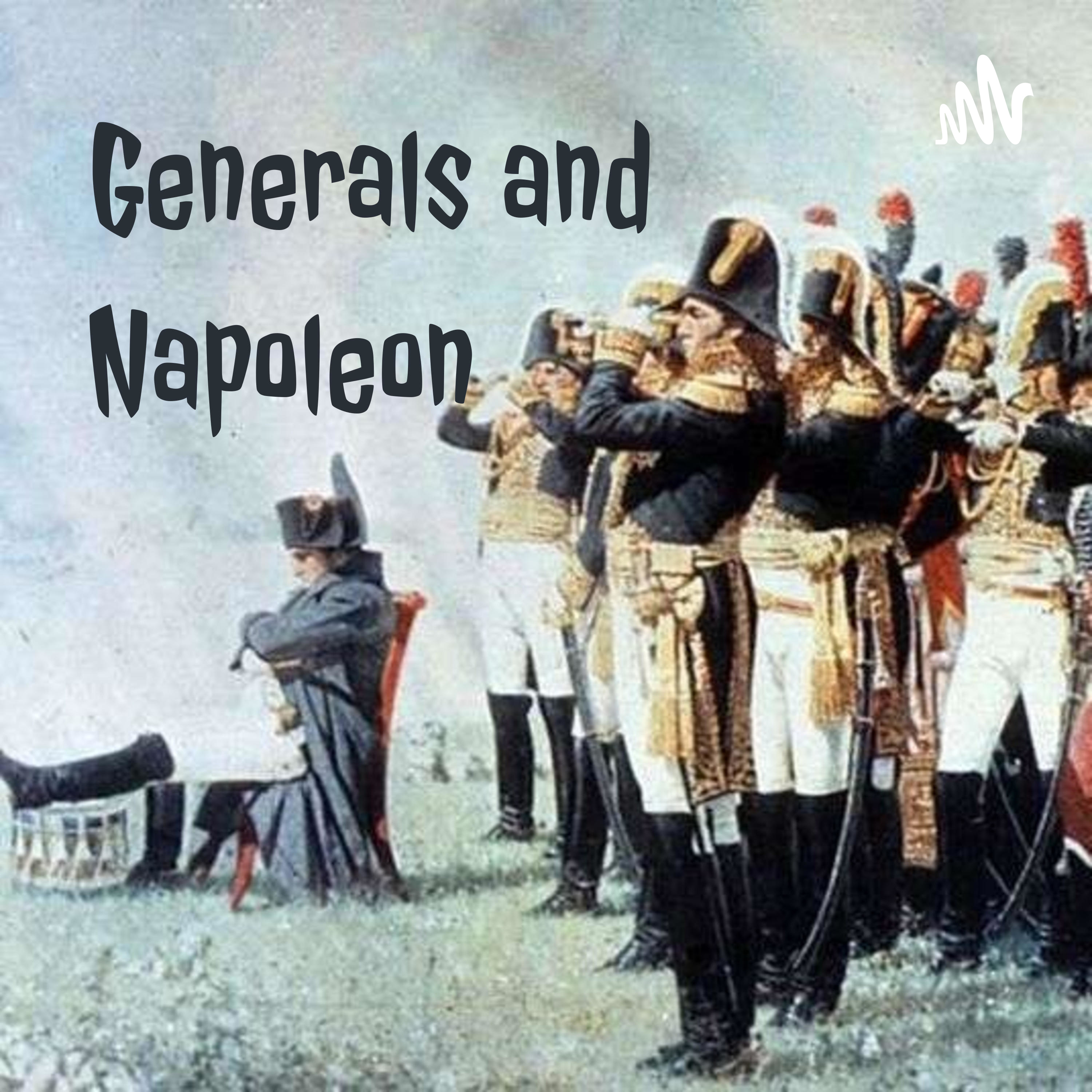
Generals and Napoleon
John W. Viscardo
Shipwrecks and Sea Dogs
Rich Napolitano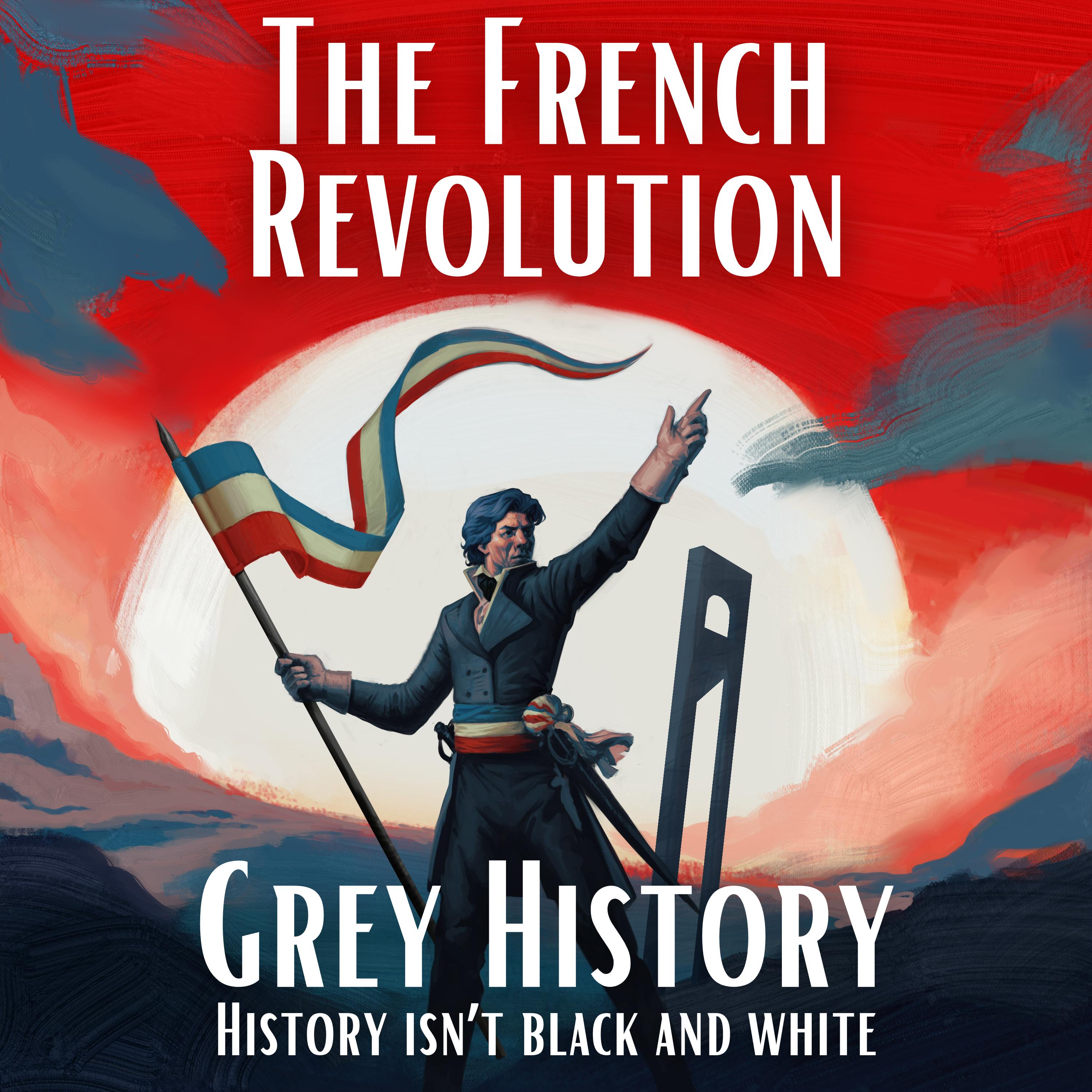
French Revolution & Napoleon (Grey History)
Grey History (William Clark)
The Life and Times of Frederick the Great
Alec Avdakov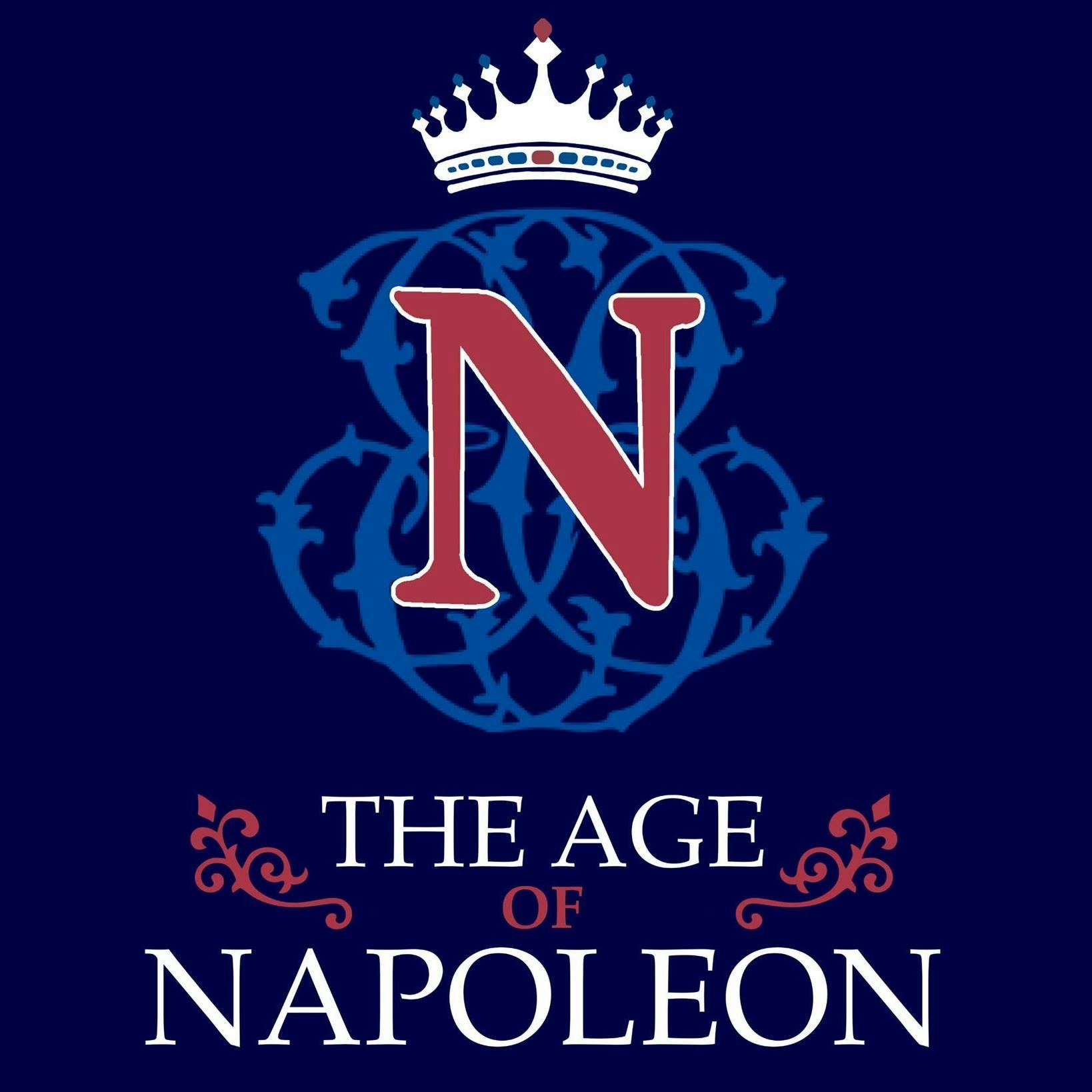
The Age of Napoleon Podcast
Everett Rummage
The Siècle History Podcast
Evergreen Podcasts
The Napoleonic Wars Podcast
Zack White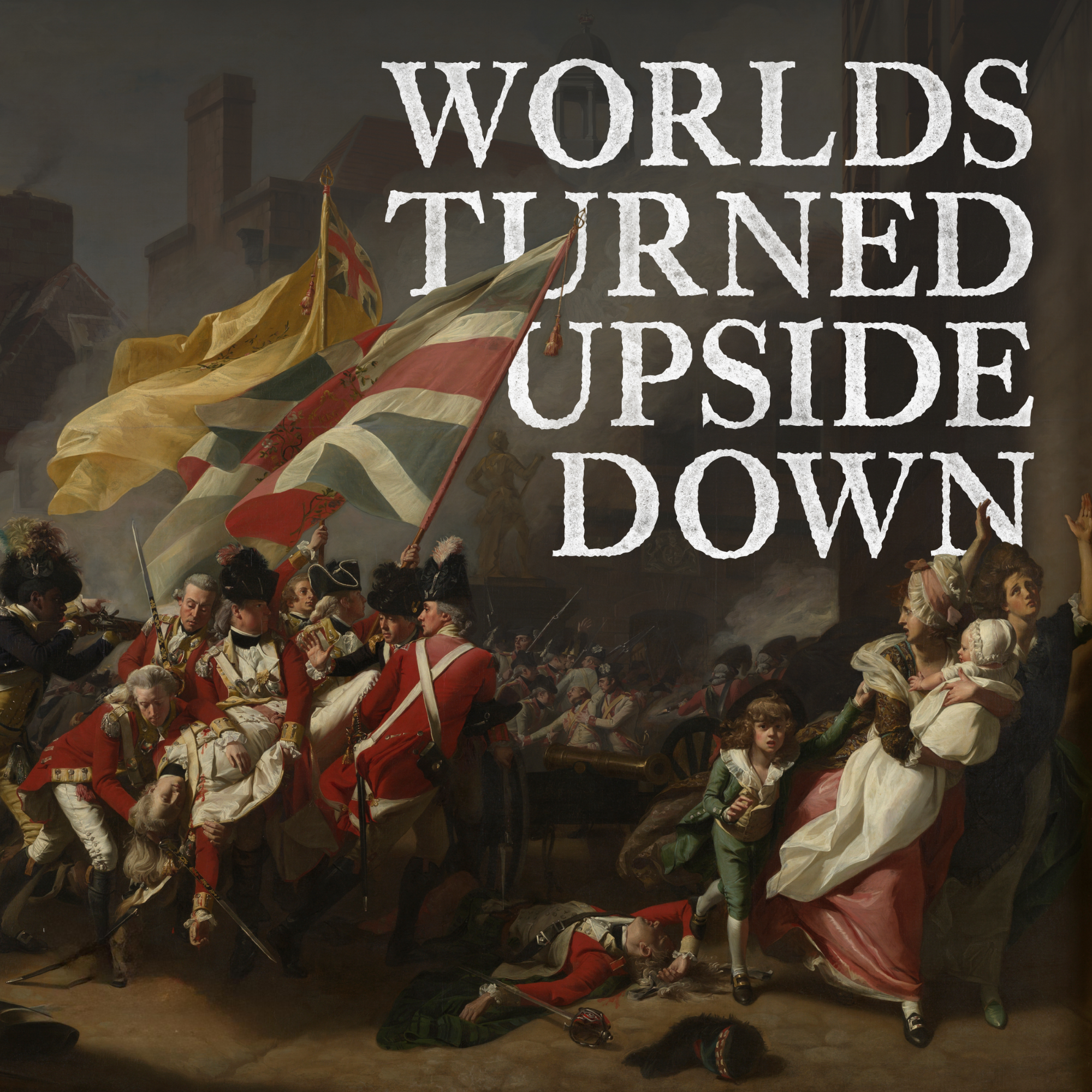
Worlds Turned Upside Down
Roy Rosenzweig Center for History and New Media
Empire-Builders
David Mainayar
Battles of the First World War Podcast
Mike Cunha
New York, Quebec, and The Water Route to the Center of the World
William Matthews
Deep into History
Deep into History
Battle Royale: French Monarchs
Ben Clarke and Eliza Sommers
A History of Japan
Justin Hebert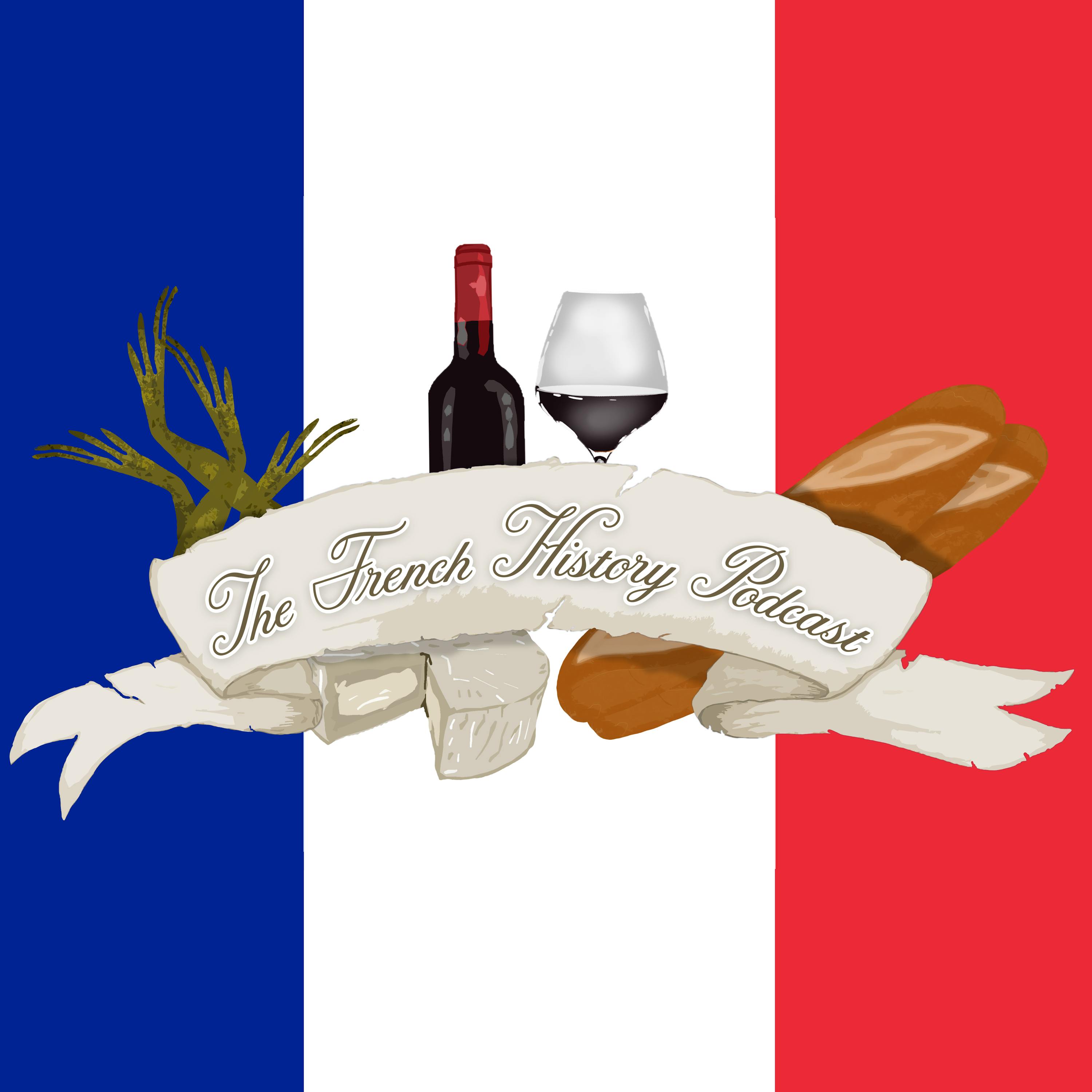
The French History Podcast
Evergreen Podcasts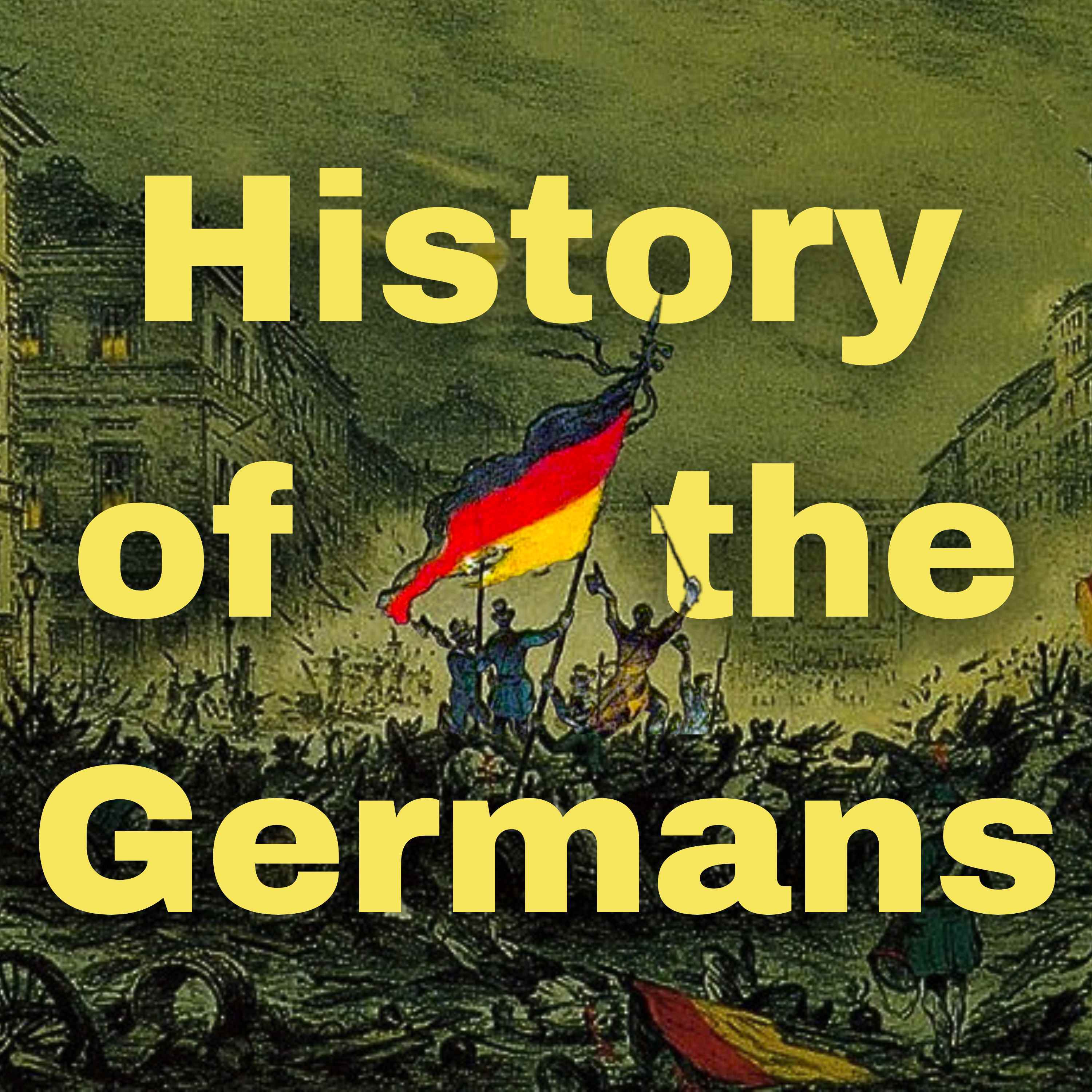
History of the Germans
Dirk Hoffmann-Becking
Half-Arsed History
Riley KnightFrench-Canadian Legacy Podcast
French-Canadian Legacy Podcast
The History of England
David Crowther
Canadian History Ehx
Craig Baird
Hugos There Podcast
Hugos There Podcast
Hugo, Girl!
Hugo Girl

